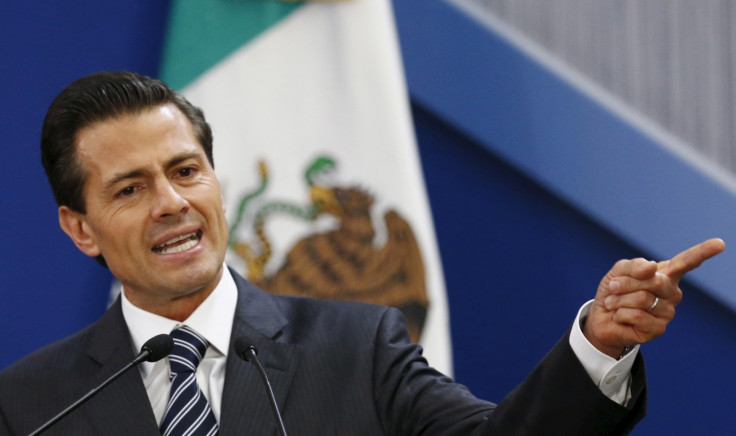Mexican president Enrique Peña Nieto on Donald Trump's border wall: 'No way'
He also objects to Trump 'generalisations' in calling Mexicans 'rapists'.

Here's a word from south of the border for Donald Trump's plan to charge Mexico for a border wall between the two nations: Nunca.
Mexican President Enrique Peña Nieto said in an interview on Sunday (10 July) that there is "no way" his nation would ever fund such an idea.
"There is no way to have Mexico pay," Peña Nieto told CNN. "There is no way that Mexico can pay [for] a wall like that," which Trump wants the US to build - at Mexico's expense - to stop illegal immigration.
Peña Nieto also criticised Trump's comments about Mexicans.
While announcing his run for president in 2015, Trump said that when "Mexico sends its people, they're not sending their best. They're sending people that have lots of problems, and they're bringing those problems with us. They're bringing drugs. They're bringing crime. They're rapists."
"I cannot agree with such a generalisation for Mexicans," said Peña Nieto. "There is no way to agree with comments like these which describe all Mexicans in such a way."
While Peña Nieto said he is prepared to work with the next president of the US, whoever it may be, he couldn't seem to find any common ground with the presumptive Republican presidential candidate — including trade deals which Trump is opposed to and Peña Nieto supports.
Peña Nieto said the pending Trans-Pacific Partnership (TPP) would strengthen ties with Washington and Ottawa, and that the North American Free Trade Agreement (NAFTA) has saved jobs and boosted all three economies.
Trump has repeatedly vowed to demand either a renegotiation or withdrawal from NAFTA and the TPP, moves that would trigger steep tariff increases causing tariffs to rise on imports from those countries and exports from the United States. His Democratic rival Hillary Clinton has also said she opposed the Trans-Pacific Partnership deal as currently written.
© Copyright IBTimes 2024. All rights reserved.






